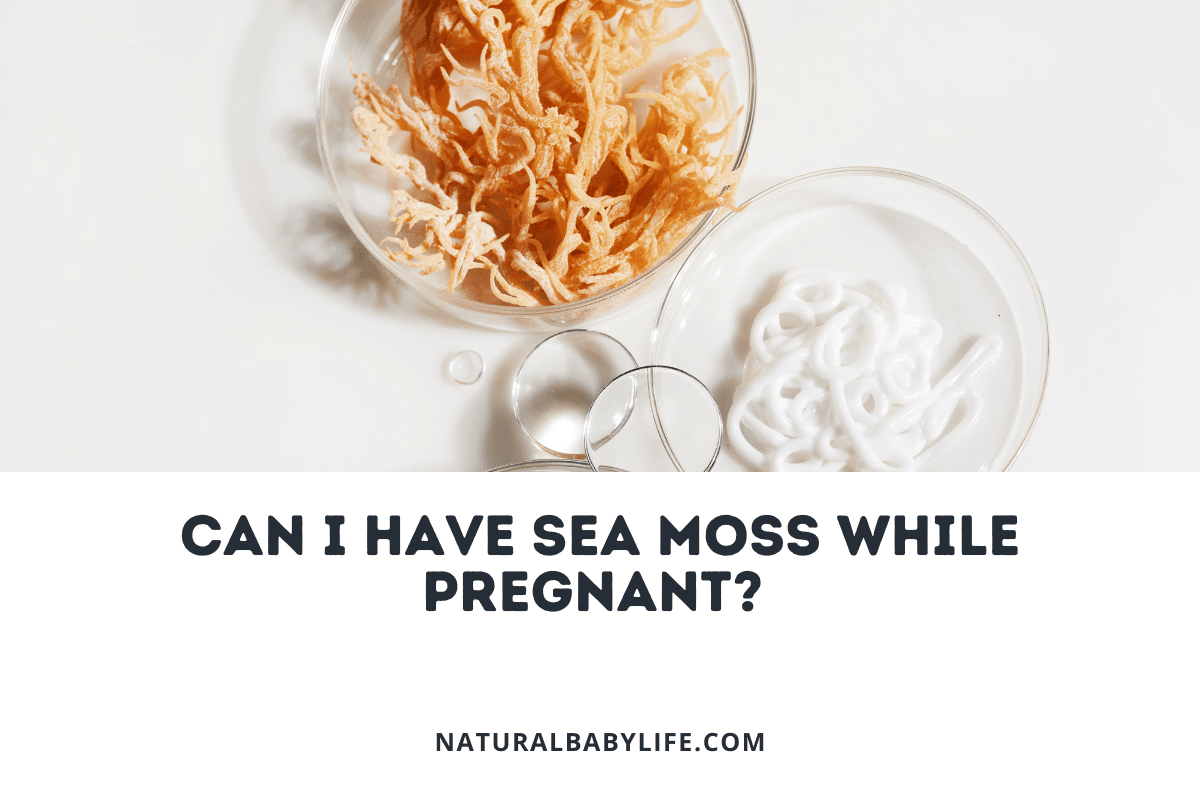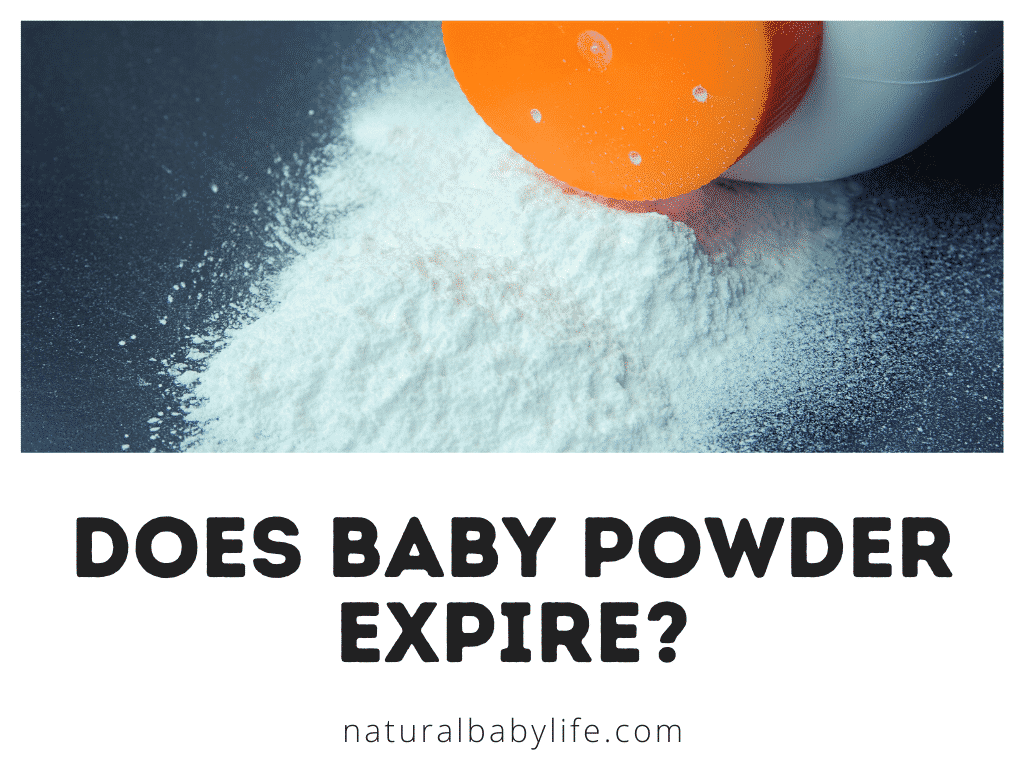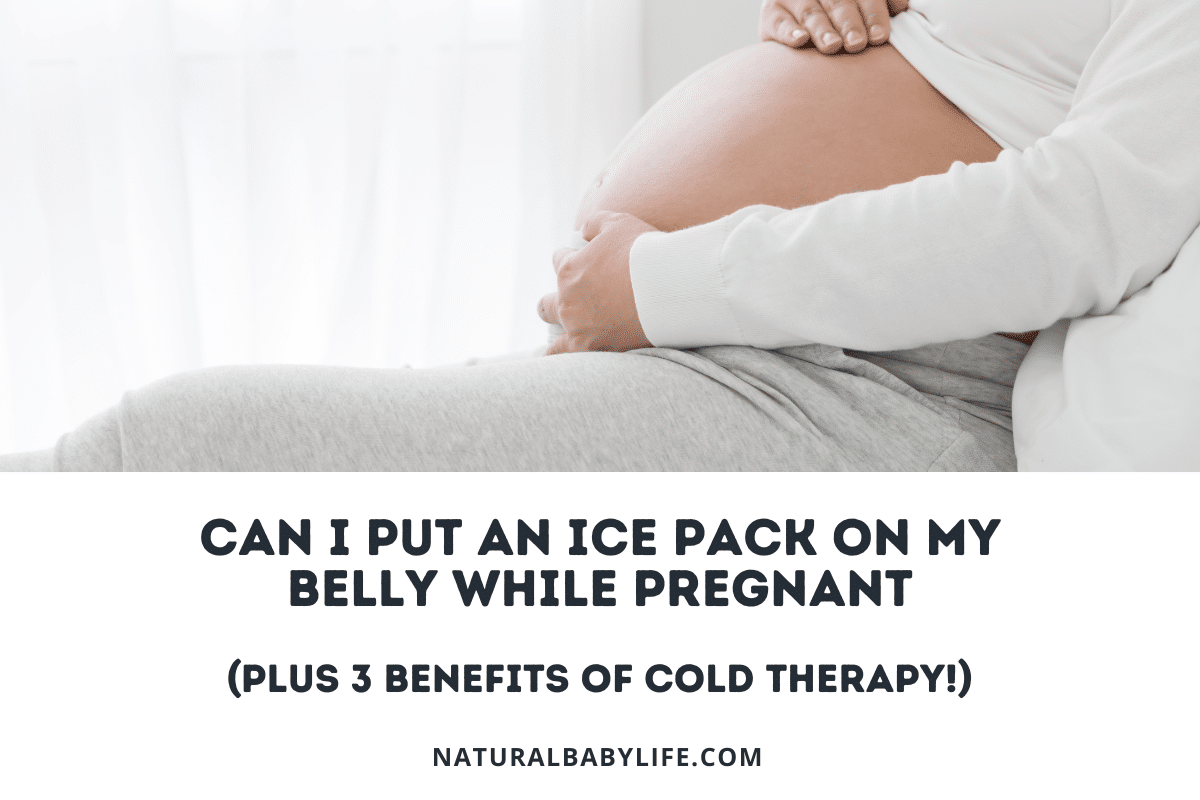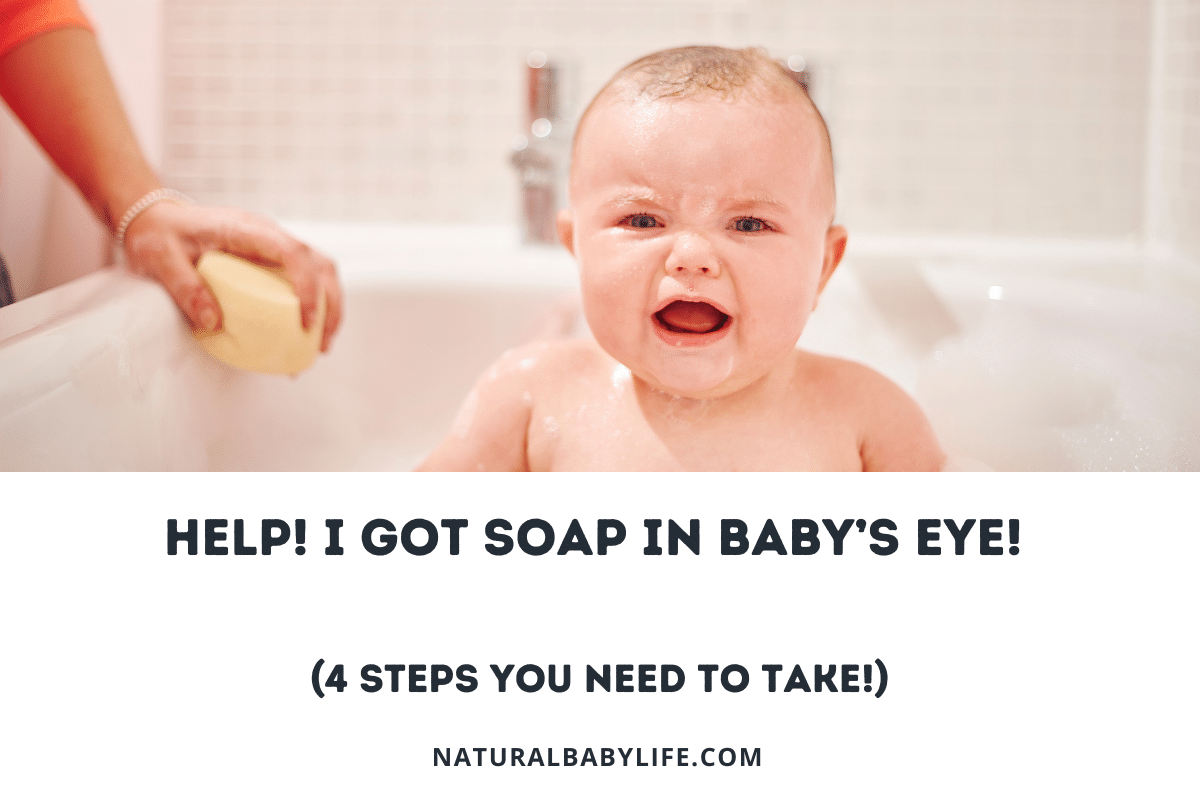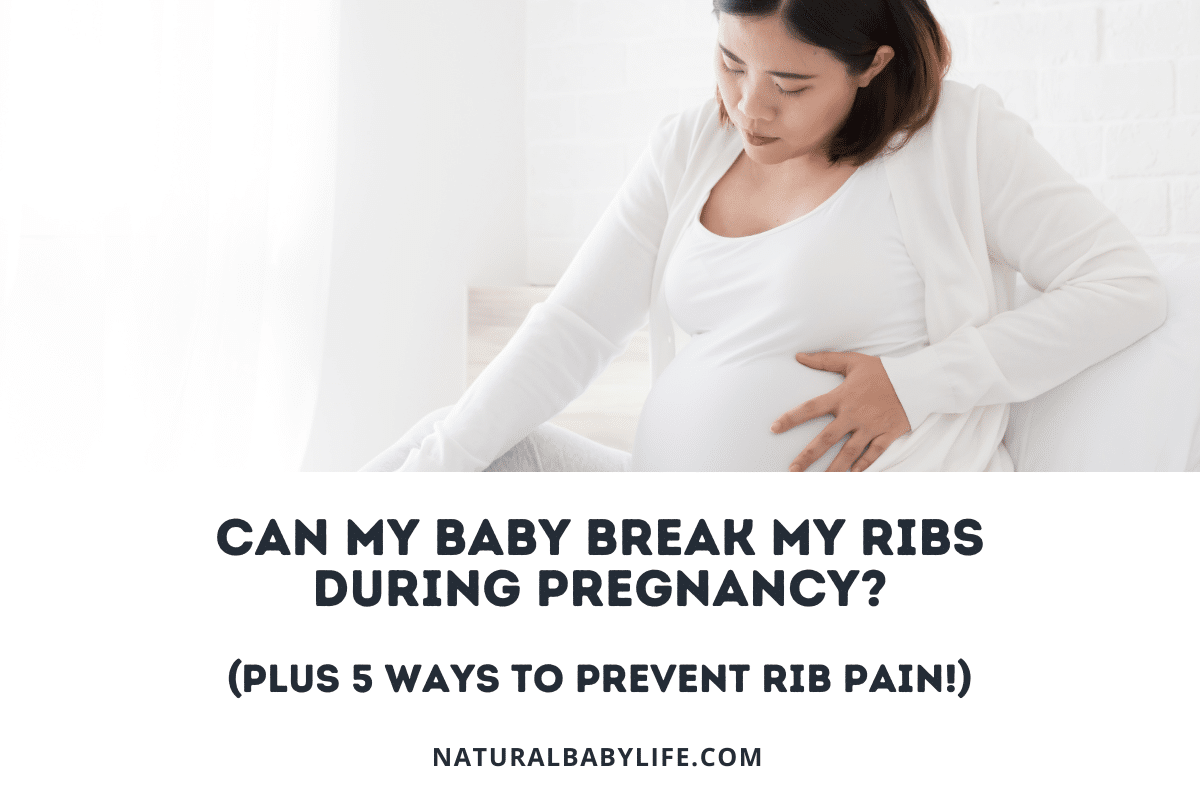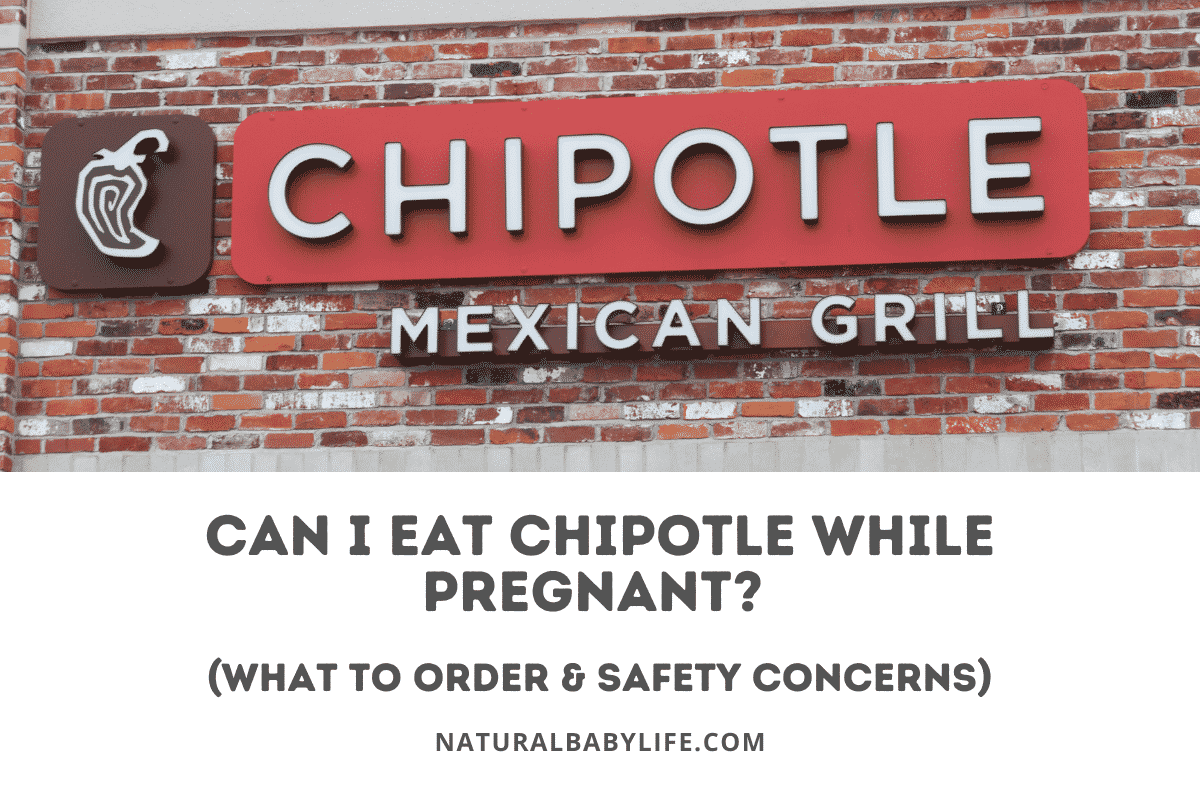Sea moss is a trending food because it packs a big nutritional punch in a very small serving size. That’s undeniably appealing during pregnancy when it can be challenging to eat a balanced diet. But, as with many trends, it’s important to consider whether it’s safe while pregnant.
While sea moss has a lot of amazing nutrition that can support a developing fetus, not all sea moss is safe to consume when pregnant. Depending on where it’s grown, it may have high levels of heavy metals, which can affect a baby’s brain development and even cause miscarriage or stillbirth.
Read on to get up to speed on the sea moss trend and get the information you need to decide whether it’s right for you during your pregnancy.
Table of Contents
What is sea moss?
Sea moss refers to a few specific types of algae or seaweed that grow in the oceans and that humans harvest for consumption. Some of the most popular types of sea moss include: Irish sea moss (Chondrus Crispus), Jamaican sea moss (Gracilaria), and Guso (Eucheuma Cottonii).
It’s harvested from the coastal waters of the Atlantic Ocean between North American and Europe and also in warmer water in the Caribbean and off of the coasts of Asia, Africa, and South America.
You can consume sea moss on its own like any other vegetable, but most people consider its fishy taste unpleasant. It also comes in powder form, gel, capsules, and in lotions.
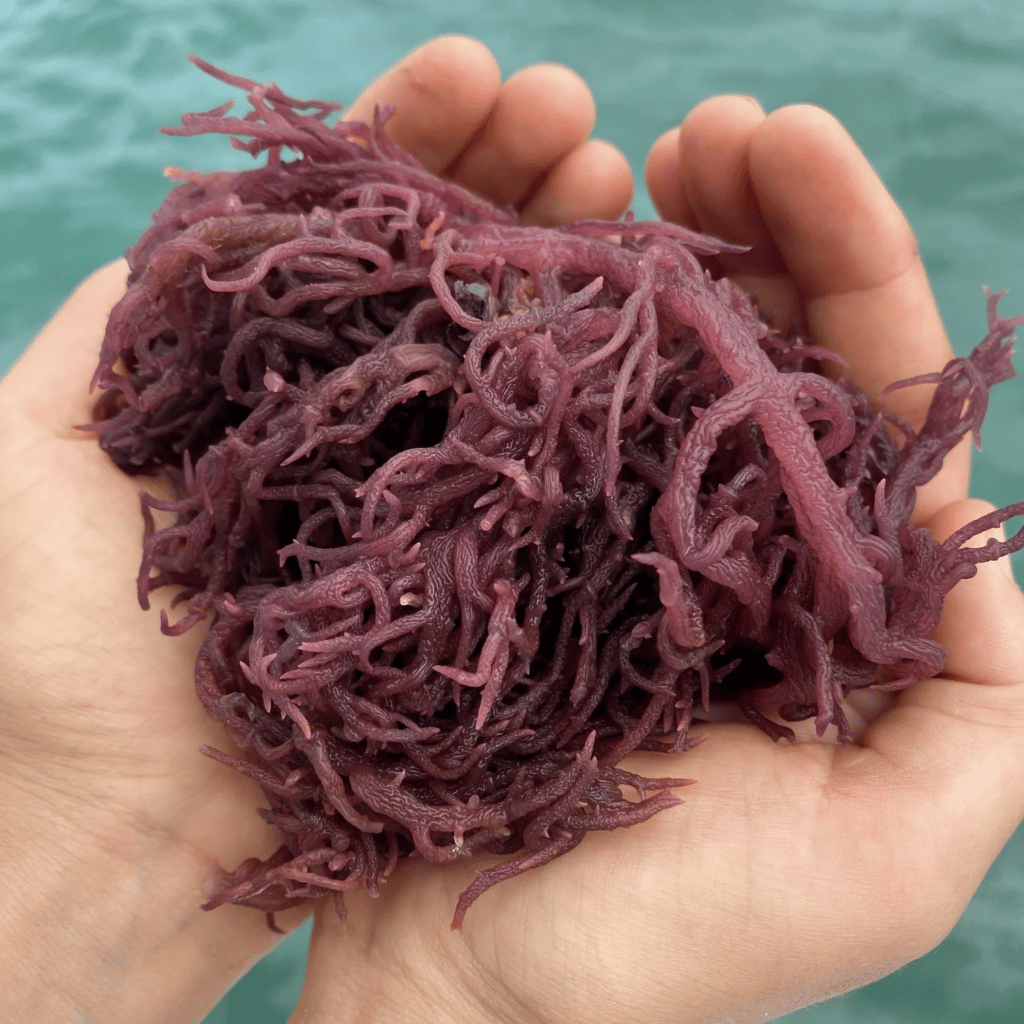
Sea moss is having its moment as a superfood because a small two-tablespoon serving has a big dose of daily nutrients, including:
- Iron – Too little iron during pregnancy can cause anemia. Iron deficiency is associated with low birth rates, increased risk for infant death, and many unpleasant symptoms for the pregnant person like fatigue and headaches.
- Zinc – Zinc during pregnancy can support full-term births.
- Copper – Copper is essential during pregnancy for the development of the baby’s skeletal, immune, and cardiovascular systems.
- Iodine – A lack of iodine causes enlargement of the thyroid and can cause developmental delays in children born to mothers who had an iodine deficiency during pregnancy.
Benefits of sea moss during pregnancy and how to take it
Nutrition during pregnancy is essential for supporting the growth of your fetus and for keeping your own body healthy.
The American College of Obsetetricians and Gynecologists (“ACOG”) considers the following vitamins and minerals critical during pregnancy:
- Calcium
- Iron
- Iodine
- Choline
- Vitamin A
- Vitamin C
- Vitamin D
- Vitamin B6
- Vitamin B12
- Folic Acid
During pregnancy, too much of a good thing can actually be a bad thing, and too much of any vitamin can be toxic. During pregnancy, iron and calcium pose the greatest risks for overconsumption. Vitamin A can also cause birth defects in high doses.
A two-tablespoon serving of sea moss has .89 milligrams of iron and 7.2 milligrams of calcium. ACOG recommends 27 milligrams of iron per day and 1,000 milligrams of calcium per day during pregnancy.
Some sea moss options to consider include:
- Secret Element Organic Sea Moss Capsules
- Wildcrafted Sea Moss Gel
- Organic Earth Food Sea Moss Powder
- A Natural Pick Me Up –– Stop relying on coffee to get through your day. This sea moss gel organic raw formula is infused with fruits and packed with antioxidants and minerals the body needs. Raw sea moss provides a surge of essential energy to help you thr
Although typical dosing of sea moss doesn’t seem to put you at risk for overconsumption of nutrients, you should let your doctor know what vitamins or supplements you are taking so they can help you identify if you’re at risk for over or underconsumption of any important nutrients.
The serving size varies based on the manufacturer and product form.
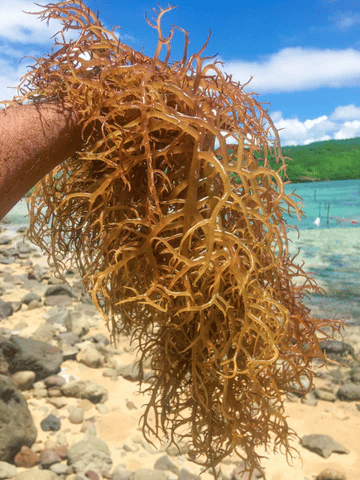
Concerns about taking sea moss during pregnancy
Like any food, sea moss absorbs elements from its environment. As our oceans are increasingly polluted, it’s important to know the source of your sea moss. Depending on when and where it’s harvested, it can contain heavy metals.
The downside of sea moss being a newly trending food is that it isn’t as well studied as other types of sea weeds. For the most part, researchers are finding that most sea moss is below the heavy metal toxic level, and its important for the manufacturer to disclose sourcing and for the government to enact regulation to ensure safety. Manufacturers are responsible for safety but don’t have to prove it.
Pregnant women will want to carefully consider the source and quantify of any sea moss they consume because heavy metals can seriously endanger your baby.
Exposure to heavy metals can increase your chance of stillbirth or miscarriage. Children exposed to heavy metals in the womb are also at risk of developmental delays and intellectual disabilities. Heavy metals can also be passed through breast milk.
The gel form of sea moss can also be contaminated with microbial pathogens like C. Botulinum. Botulism exposure during pregnancy can cause maternal respiratory failure and even death and contributes to premature birth.
How sea moss impacts fertility for women
During an infertility struggle, it’s a great idea to optimize your nutrition, but you should ensure you’re doing it safely. Your physician will likely suggest a regimen of researched supplements to give your body the best chance to conceive.
Dietary supplements, like sea moss products, are regulated by the Food and Drug Administration (“FDA”) as food, not as drugs. This means the FDA doesn’t test or review products for their ability to contribute to or cause a medical outcome.
As noted above, sea moss contaminated with heavy metals can have very detrimental impacts on fertility. However, safely sourced sea moss can have a major nutritional benefit that can support fertility. Let’s take a look.
Iodine’s impact on female fertility
The primary benefit of sea moss is that it’s high in iodine. A lack of iodine is dangerous because it can cause thyroid problems and increase infant death, prematurity, and developmental problems. As a result, the U.S. and many other countries add iodine to table salt.
Despite widespread supplementation, Australian researchers found that about one-fifth of women of child-bearing age still had low iodine levels.
Iodine plays an important role in conception. Iodine is critical for a well-regulated thyroid. Low thyroid levels can impair ovulation and increase the risk of miscarriage.
Researchers speculate that increased iodine intake could be one treatment avenue for people with unexplained infertility.
Dairy products, eggs, cheese, and chicken are other sources of iodine.
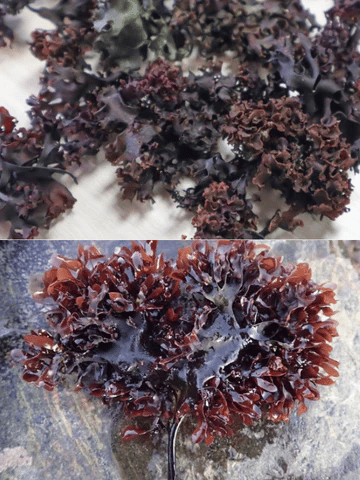
Does sea moss have an impact on male fertility?
While the positive connection between female fertility and iodine intake is clear, the opposite is true for male fertility.
High iodine intake is associated with lower sperm motility and lower sperm counts. Many articles and studies associate the worldwide decline in sperm levels to the widespread increase in iodine consumption.
Sperm must be of sufficient count and movement for conception.
Is sea moss better than prenatal vitamins?
Pregnant people should not use sea moss as a substitute for prenatal vitamins. While sea moss is nutrititonally dense, it does not have the full level of the daily recommended vitamins and minerals to best support a pregnant person and developing fetus.
Most importantly, the CDC states that folic acid is the only clinically proven ingredient shown to reduce the risk of neural tube defects. Because folic acid is a synthetic ingredient, it isn’t found in sea moss unless the manufacturer adds it to the product.
Is it safe to take sea moss while breastfeeding?
The heavy metals and high iodine content of sea moss can be transmitted to the infant via breastmilk.
A small study of Korean mothers, who are traditionally given seaweed soup after birth, found a high prevalence of elevated iodine and hypothyrodisim in infants.
Infant brain development can be impacted by exposure to heavy metals, even at low doses.
Is sea moss high in folic acid?
Sea moss is naturally high in folate.
Folate encompasses multiple forms of Vitamin B9. Folic acid is a synthetic version of folate. Both folic acid and folate help prevent neural tube defects.
Conclusion
Sea moss can be a good way to add some extra vitamins and minerals to your diet. However, sea moss can contain high levels of heavy metals which can be unsafe during pregnancy.
If you decide to include sea moss in your diet, carefully research the source and disclose it to your doctor to prevent contradictions with other supplements or medications.

